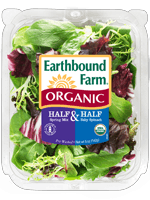
WhiteWave Foods met its 2015 goal to source Certified Sustainable Palm Oil for 100 percent of its liquid creamers in 2012, three years ahead of schedule. The company, whose brands include Silk, Horizon and Earthbound, set the target in 2010. Palm oil is an ingredient used in many of its liquid creamers, and the palm oil industry has a high impact on the environment due to deforestation.
WhiteWave Foods recently released its first corporate social responsibility (CSR) report, which goes on to detail other environmental achievements, including reducing packaging, waste and greenhouse gas (GHG) emissions.
Despite production volume increasing in both North America and Europe, WhiteWave has managed to reduce GHG emissions. It cut GHG emissions in North America by by 32 percent per gallon of product while production volume increased by 57 percent since 2006.
Meanwhile, the company also slashed carbon emissions by 39.5 percent per ton of product in Europe, where product volumes have grown by 22 percent since 2007. While cutting emissions, the company also increased onsite renewable energy production by 30 percent and reduced waste sent to landfill by 47 percent in its European operations.
Packaging
When it comes to packaging, WhiteWave Foods has three sustainability principles:
- Minimize the environmental impact by selecting the right materials.
- Optimize our packaging for both upstream and downstream impact.
- Engage and educate consumers and retail customers about packaging best practices.
Examples abound of how the company incorporates those three principles into its packaging. Its redesigned carbon packaging caps use 33 percent less material which resulted in 920,000 pounds of resin saved in 2013. It removed Polyvinylidene chloride (or PVDC, more commonly known as saran) material from its International Delight creamer singles, which eliminated 1.1 million pounds of material from the waste stream. Its Horizon Mac & Cheese and Snacks cartons contain a minimum of 35 percent post-consumer content and are made with 100 percent recycled paperboard. Alpro’s margarine bottle and Provamel’s margarine cup are packaged in polyethelyne terephthalate (PET), which helped reduce the amount of plastic used by 14 kilograms in the Alpro bottle and 8.48 kilogram in the Provamel cup.
Water conservation
Through training programs, WhiteWave is increasing awareness among its employees about water conservation. In 2012, WhiteWave required employees to participate in an online training module that provided background on important issues about water conservation, plus provided practical suggestions on how to use less water. Several of its North American plants have created teams that focus on water efficiency and ways to reduce use.
WhiteWave also works to preserve water systems: It is a charter sponsor of Change the Course, an initiative that works to preserve the Colorado River. The company buys Water Restoration Certificates (WRCs) to balance 100 percent of the water used to manufacture Silk products at its company-owned facilities. Its International Delight brand invested in a new water-flow restoration project in California in 2013, and bought WRCs to balance 100 percent of the water used to produce its iced coffee beverages. Its combined investments in WRCs have helped restore more than 485,000,000 gallons of water to ecosystems, according to the report.
Non-GMO soy
It's also worth noting that WhiteWave is one of the largest purchasers of organic soybeans in North America, and the majority of conventionally-grown soy in the U.S. is genetically modified (GMO).
The company is also making moves toward sustainability in this area: All of the company's Silk plant-based beverages, including soy beverages, are enrolled in the Non-GMO Project’s Product Verification Program (PVP) and display the verified seal.
Additionally, WhiteWave is vocal about its support of labeling GMO foods, stating in the report that it advocates “national mandatory GMO labeling in the U.S.” The company gave over $1 million to labeling efforts since 2012 through Just Label It and other initiatives.
Image credit: Earthbound Farms

Gina-Marie is a freelance writer and journalist armed with a degree in journalism, and a passion for social justice, including the environment and sustainability. She writes for various websites, and has made the 75+ Environmentalists to Follow list by Mashable.com.














